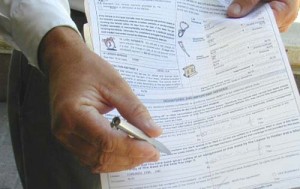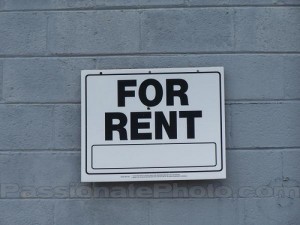Posted by Teresa on September 23, 2011 under Landlord Tips | 
 It seems like more people are getting into property management. The shift from a home-buying boom to a strong rental market could be one big reason. Have you seen the seminars popping up that claim to teach real estate agents how to manage property in one 3-hour session?
It seems like more people are getting into property management. The shift from a home-buying boom to a strong rental market could be one big reason. Have you seen the seminars popping up that claim to teach real estate agents how to manage property in one 3-hour session?
Property management takes a strong set of skills and expertise. Your property manager is supposed to enhance your business and keep you safe—not be another potential liability that can cause your business harm.
Here are three things to watch out for and consider if you’re planning on hiring a property manager:
- Avoid hiring a friend or family member. Business and friendship seldom mix successfully. If your friend who’s been selling houses just added property management to his list of services, do you really want to be his guinea pig? Does your cousin really have the guts to evict tenants and handle rent disputes? And are either of them educated about rental and tenant laws?
- Realize that you need to manage the property manager. It would be nice if your PM took care of your rental business so well that you didn’t have to do anything but count your money, but you will still need to follow up on expenses, repairs, rent collection and vacancies. A good PM will provide appropriate reports on a regular basis, but do your own follow-up just to be sure.
- Find a PM who really cares about your properties and your business. The higher cost of an effective property manager could be well worth it. Interview several to find one you who knows the local market, the local and state rental laws and who agrees with your management philosophy. Ask for and check references. Get examples of their reports. Check out their insurance and bonding status.
As the rental market heats up, more people will be adding property management to their list of services. Be picky and hire one who is knowledgeable and experienced.
Posted by Teresa on September 21, 2011 under Landlord Paperwork and Forms, Lease and Rental Agreements | 
 As a landlord, do you keep track of tenant lease renewal dates? It’s important to do so, for a few reasons.
As a landlord, do you keep track of tenant lease renewal dates? It’s important to do so, for a few reasons.
If you’re on a one-year lease schedule, set reminders to contact tenants prior to the lease expiration to thank them for leasing your property and inform them it will soon be time to sign a new lease. If you will be raising the rent, now is the time to inform your tenant. You may wish to provide a perk such as an appliance upgrade or new carpet to entice them to renew at the higher rent.
At lease signing, have your tenant fill out an updated information form, so you can be sure to have current employment information, emergency contacts, current occupants and vehicle license numbers:
- You’ll want the employment information in case your tenant vacates the unit and owes you rent. If you’re forced to go to court to collect, you’ll want to know where you can garnish the tenant’s wages, if it comes to that.
- Personal and emergency contacts are important, not only in case of an actual emergency, but again, if the tenant breaks the lease and owes you rent, you’ll have a place to start looking for him or her.
- Vehicle license information is vital to keeping unauthorized or unknown vehicles off your property.
- Asking for current occupants are a great way to discover if there are unauthorized residents staying in your rental property. If there are “guests” over age 18, you’ll want to point out the lease clause that covers your guest policy (such as limiting guests to two consecutive weeks in any six month period) and require lease applications and tenant background checks from anyone living in your rental unit who is not on the lease. Of course, if the new tenant is permanent, you’ll need a to draw up a new lease that includes his or her name.
Remind tenants that they must provide written notice if they intend to move out at the end of the lease. Ask for an exact date they will be vacating. However, don’t promise the unit to a new tenant until you are absolutely sure that the old tenant is moving out.
Posted by Teresa on September 17, 2011 under Lease and Rental Agreements | 

Dealing with tenants who want to break a lease early doesn’t have to be unpleasant. Experienced landlords often offer tenants a buy-out agreement as a way to compensate them for the trouble of a breaking the lease.
You can set the conditions of the buyout according to your needs. For example, you can release your tenant from the lease and any remaining rent obligations, in exchange for a fee. While the fee does not affect the tenant’s obligations for any property damage (any security deposit paid by the tenant is a separate matter), it can compensate you for your time and trouble in finding a replacement tenant, plus your advertising expenses and possible loss of rental income while undergoing the process.
Be sure that the terms and conditions of the buy-out agreement are clearly spelled out in a document that will be signed by you and all tenants listed on the original lease agreement. Include the dollar amount of the fee, which might equal one, two or three months’ rent, along with the date the property will be vacated, and other details concerning property inspection, key return, security deposit, and forwarding address information. It’s a good idea to have all of your lease and agreement documents reviewed by a landlord/tenant attorney.
The amount of the fee should cover the loss of rent for the time you expect it will take to re-lease the property, advertising expenses and any other costs related to the tenant terminating the lease.
Legal disclaimer:
The contents of this article are intended for general information purposes only, and should not be relied upon as a substitute for obtaining legal advice applicable to your situation.
Posted by Teresa on September 13, 2011 under Housing Trends, Rental Market | 
 According to the U.S. Census Bureau, there has been a big jump from 2007 in the number of individuals and families doubling up in housing. The definition of “doubled-up” households are those that include at least one person over age 18 who is not in school, not the householder, and not a spouse or partner of the householder.
According to the U.S. Census Bureau, there has been a big jump from 2007 in the number of individuals and families doubling up in housing. The definition of “doubled-up” households are those that include at least one person over age 18 who is not in school, not the householder, and not a spouse or partner of the householder.
The Census Bureau says 69.2 million, or 30%, of adults were doubled-up in 2010, compared to 61.7 million adults, or 27.7% in 2007. Total American households who have doubled up due to unemployment or underemployment stands at 18.3%.
Much of the increase comes from people aged 25 – 34, living with their parents. That number increased from 4.7 million before the recession to 5.9 million (14.2% of the age group) in 2010.
The study was done as part of the Census Bureau’s wider report on income, poverty and health insurance. The report shows that household incomes dropped sharply last year. Since 2007, they have fallen 6.4%. Not surprisingly, the number of people living in poverty rose sharply, up for the fourth year in a row to 46.2 million people, or 15.1%.
If counted separately, some 45% of the young adults who live with their parents would fall below the poverty threshold. Because an entire household’s income is counted when determining poverty status, the group has an official poverty rate of only 8.4%.
What does the Census Bureau data mean for landlords?
- Fewer households mean lower demand for rental housing.
- Americans have less income to spend on housing and other necessities.
- Fewer home sales will continue to drag the housing market down.
- Once the economy starts to improve, many of the families and adult children will move out on their own, spurring a strong demand for housing.
Now, if only the economy would start to improve!
Posted by Teresa on September 8, 2011 under Landlord and Tenant FAQs | 
 Every now and then, landlords are faced with unusual requests from their tenants. One we’ve heard of recently involved a tenant asking for a discount on rent in exchange for paying a full years’ worth up front.
Every now and then, landlords are faced with unusual requests from their tenants. One we’ve heard of recently involved a tenant asking for a discount on rent in exchange for paying a full years’ worth up front.
The rent is $650 per month, and the tenant offered a full payment of $7,200 or $600 per month. The landlord wanted to know if it was a good idea to accept the tenant’s money and move on, knowing she didn’t have to worry about late rent for a full 12 months.
While it might seem like a no-brainer to eliminate one concern that comes with being a landlord, this might not be such a smart way to go. Here’s why:
- Even if the landlord put the entire amount into the bank, interest rates are hardly attractive right now. Other investments might garner more return—or not. Is the risk worth it? There are few incentives for the landlord to give up $600 in rent.
- Offering a tenant a discount doesn’t make sense when you consider the lease stipulates rent is $7,800 per year, to be paid monthly at the rate of $650 per month. Monthly payments are all a landlord needs to do to make rent easier to pay.
- Entering into negotiations such as this with tenants could lead to others seeking discounts for paying two, three or six months in advance. This could lead to a bookkeeping nightmare for the landlord. And anyone who thinks tenants won’t find out about such an arrangement should think again. Tenants talk!
- If the tenant breaks the lease, or the landlord needs to evict, holding the tenant’s money for future rent could complicate matters.
In the end, a $50 discount is far more generous than any bank would give the landlord—so why give it to the tenant?
 It seems like more people are getting into property management. The shift from a home-buying boom to a strong rental market could be one big reason. Have you seen the seminars popping up that claim to teach real estate agents how to manage property in one 3-hour session?
It seems like more people are getting into property management. The shift from a home-buying boom to a strong rental market could be one big reason. Have you seen the seminars popping up that claim to teach real estate agents how to manage property in one 3-hour session?



